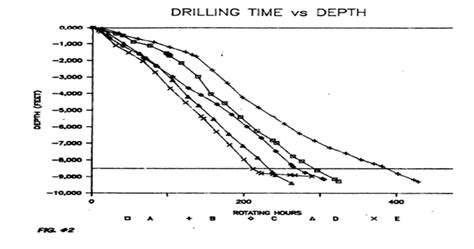Well Drilling Time: Winter vs. Summer – Which Season Reigns Supreme?
Planning to drill a well? The season you choose can significantly impact the process, cost, and overall success. While many believe summer is ideal, the reality is more nuanced. This comprehensive guide delves into the advantages and disadvantages of well drilling during winter versus summer, helping you make the best decision for your project.
What are the benefits of drilling a well in the summer?
Summer often emerges as the popular choice for well drilling, and for good reason. Longer days provide more daylight hours for work, allowing crews to maximize their drilling time. The warmer temperatures are also generally more comfortable for workers, potentially leading to increased efficiency and fewer delays due to weather-related issues. However, this seemingly idyllic picture overlooks some crucial factors.
Is summer always the best time for well drilling?
While the longer days and warmer temperatures are advantageous, summer also brings its challenges. Increased demand for well drilling services during peak season can lead to longer wait times and potentially higher prices due to increased competition for contractors and resources. Moreover, summer's heat can strain equipment and increase the risk of overheating, potentially causing delays or malfunctions. Finally, drier conditions in some regions can lead to more challenging drilling conditions, potentially requiring more time and resources.
What are the benefits of drilling a well in the winter?
Winter might seem like an unlikely time to embark on a well drilling project, but it presents several potential advantages. Reduced demand typically translates to shorter wait times and potentially lower prices. Moreover, frozen ground in many areas can actually simplify drilling in certain geological conditions, as it provides a firmer base and reduces the risk of cave-ins.
Are there downsides to winter well drilling?
Despite the benefits, winter well drilling presents challenges. Shorter daylight hours restrict working time, potentially increasing the project's duration. Cold weather conditions can also impact equipment performance and worker comfort, potentially causing delays and increasing costs associated with protecting equipment from freezing temperatures. Extreme cold can also affect the drilling fluid's viscosity, potentially complicating the drilling process. Finally, snow and ice can significantly impede access to the drilling site.
What about Spring and Autumn?
Spring and autumn often present a compromise between the extremes of summer and winter. Temperatures are generally moderate, daylight hours are reasonably long, and demand for well drilling services is typically lower than in the summer months. However, unpredictable weather patterns during these transitional seasons can still lead to delays.
Which season is best for my well drilling project?
The optimal season for well drilling ultimately depends on several factors specific to your location and project. These include:
- Your geographic location and typical weather patterns: Consider the average temperatures, precipitation, and daylight hours during each season in your area.
- Ground conditions: The geological makeup of your land can significantly influence the best time to drill.
- Demand for well drilling services in your area: Check with local well drilling contractors to gauge the typical demand during different seasons.
- Your budget and timeline: Weigh the potential cost savings and time constraints of drilling during different seasons.
Factors to consider when choosing a well drilling contractor:
Regardless of the season you choose, selecting a reputable and experienced well drilling contractor is crucial for a successful project. Look for a contractor with a proven track record, appropriate insurance, and the necessary equipment to handle the challenges of the chosen season. Ensure they can address any potential seasonal challenges effectively.
By carefully considering these factors, you can make an informed decision about the best time to drill your well, maximizing efficiency and minimizing potential problems. Remember to always consult with a professional well drilling contractor in your area for personalized advice tailored to your specific circumstances.

